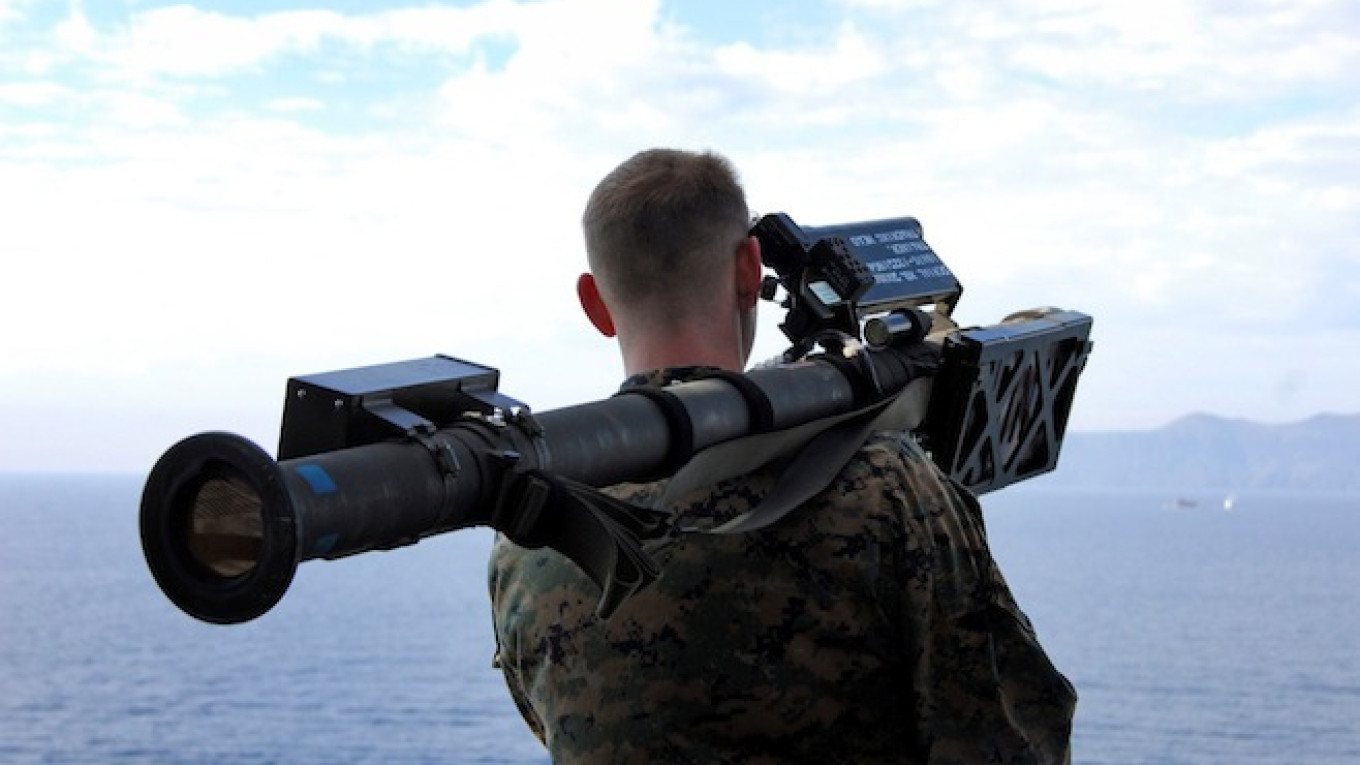A cache of U.S.-made weapons unveiled by pro-Russian separatists in eastern Ukraine has been revealed as an apparent fake.
The weapons were seemingly intended to prove U.S. involvement in the war in eastern Ukraine, where a low-level conflict between the Ukrainian army and separatists backed by Russia still simmers.
But Russian bloggers said the equipment shown by the separatists was copied from designs used in a video game, not the U.S. army.
In a video posted this week by LNR.today, a news agency in the self-proclaimed Luhansk People's Republic, separatist soldiers uncovered a storage depot at Luhansk airport, a position formerly held by Ukrainian military forces, where they found U.S.-made dry rations and opened a wooden crate labelled “U.S. ARMY,” which contained a missile launcher.
In a text accompanying the video LNR.today quoted the republic's prosecutor general, Leonid Tkachenko, as saying the weapon appeared to be a Stinger missile — a U.S.-made shoulder-mounted anti-aircraft missile.
“This is another proof of supply of lethal weapons by foreign manufacture on the territory of Ukraine,” Tkachenko said, according to the English-language report on LNR.today.
The U.S. says that it has only provided non-lethal military aid to Ukraine, while it accuses Russia of supporting the separatists with cash, equipment and troops.
But the alleged Stinger features writing on its side that says “Tracking Rainer,” rather than “Tracking Trainer,” as is seen on Stinger missiles used by the U.S. military.
Russian video game bloggers took to Twitter to point out that this spelling mistake was used on 3-D models of Stinger missiles in the 2011 first-person shooter video game "Battlefield 3" to avoid copyright issues.
A Message from The Moscow Times:
Dear readers,
We are facing unprecedented challenges. Russia's Prosecutor General's Office has designated The Moscow Times as an "undesirable" organization, criminalizing our work and putting our staff at risk of prosecution. This follows our earlier unjust labeling as a "foreign agent."
These actions are direct attempts to silence independent journalism in Russia. The authorities claim our work "discredits the decisions of the Russian leadership." We see things differently: we strive to provide accurate, unbiased reporting on Russia.
We, the journalists of The Moscow Times, refuse to be silenced. But to continue our work, we need your help.
Your support, no matter how small, makes a world of difference. If you can, please support us monthly starting from just $2. It's quick to set up, and every contribution makes a significant impact.
By supporting The Moscow Times, you're defending open, independent journalism in the face of repression. Thank you for standing with us.
Remind me later.


